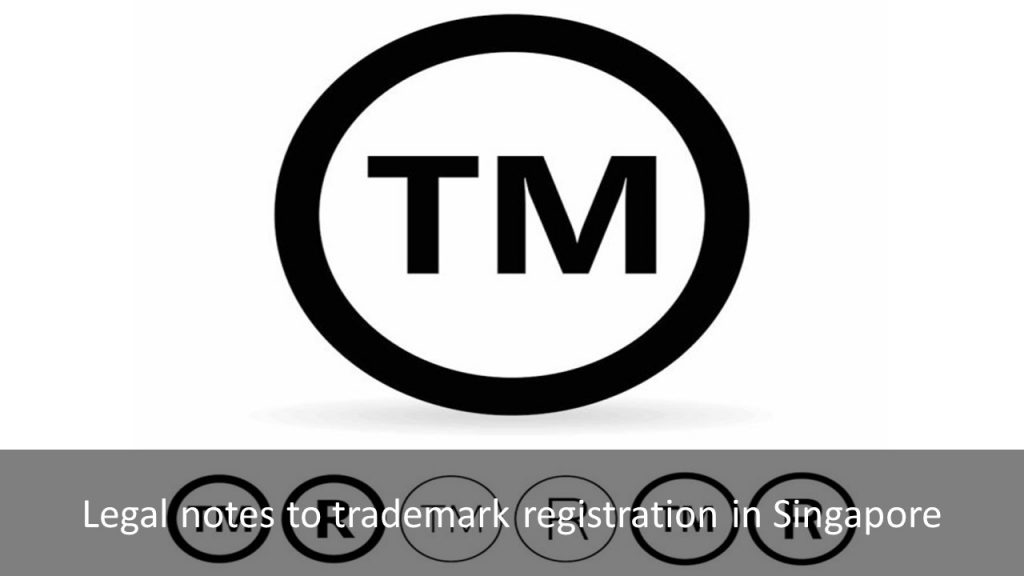Trademark registration in Singapore. Singapore, officially the Republic of Singapore, is a sovereign island city-state in maritime Southeast Asia. Singapore is the only country in Asia with a AAA sovereign rating from all major rating agencies. This country is a major financial and shipping hub and has been identified as a tax haven. Singapore is placed highly in key social indicators: education, healthcare, quality of life, personal safety, and housing. Singaporeans enjoy one of the world’s longest life expectancies, the fastest Internet connection speeds, and one of the lowest infant mortality rates in the world. Accordingly, many businesses want to enter this market and one of the most important preparations a business needs to take before expanding to this country is to learn the procedure of trademark registration in Singapore.
Trademark in Singapore
A mark that is registrable as a trademark in Singapore may be any letter, word, name, signature, numeral, device, brand, heading, label, shape, color, an aspect of packaging, or a combination of these.
In general, a trademark in Singapore is a mark that is able to distinguish a party’s goods or services from those of other parties.
The following trademark types are registrable in Singapore: Trademark, Collective mark, Certification mark.
Forbidden trademarks in Singapore
A mark that is forbidden in Singapore has one of the following criteria:
- Marks that denote the kind, quality, quantity, intended purpose, value, the time of production of goods or of rendering of services;
- Marks that consist of common surnames or geographical names;
- Marks that are unable of being represented graphically;
- Marks that are unable to distinguish the goods or services from a party to those of others;
- Marks that are not confusingly similar to an existing trademark or in pending status;
- Marks that mislead the public about the nature of the goods or services.
Advantages when obtaining a trademark in Singapore
Advantages when obtaining a trademark in Singapore include:
- Exclusively use of the trademark;
- Rights to detect, restrict and contain infringement acts of other parties;
- Gain increasingly benefits from the market value of the trademark;
- Obtain insurance to the quality of the products for the customers;
- Gain recognition on the market overtime;
- License for commercial use by third parties;
- Up to 400% tax rebates from the Singapore Government under the Productivity and Innovation Credit Scheme;
Necessary documents for trademark registration in Singapore
Necessary documents for trademark registration in Singapore include:
- The application for trademark registration in Singapore;
- Detailed information of the applicant (name, nationality, and address, etc.);
- Detailed information of the representative or attorney (name, nationality, and address, etc.);
- Classification of goods and/or services;
- Trademark sample;
- Priority documents (If any);
- The prescribed fee;
- Other necessary documents.
The procedure for trademark registration in Singapore
To obtain trademark protection in Singapore, the applicant needs to file their trademark application to the Intellectual Property Office of Singapore (IPOS).
After receiving the trademark application, the examiner will conduct a thorough examination to check if the application complies with the Singapore Trademark Laws and there is no similar pending or registered trademark in the system.
Protocol for the refusal of trademark registration in Singapore
In case there is a problem with the application and the examiner deemed the mark is unqualified for registration, IPOS will issue a letter stating the refusals/requirements.
After receiving the letter of notice, the applicant and/or their representative must submit a response within 4 months.
If the applicant feels the time to respond is too narrow, he/she may request an extension of the response period to gather enough claims and evidence to support their case.
If the applicant doesn’t submit the response within the stipulated time period, the trademark will be treated as Withdrawn.
The trademark registration in Singapore
If there are no issues found in the application, the trademark application will be published publicly in 2 months. Within this period, any third parties who feel like their rights are violated may file for the opposition of the registration of the mark.
Like the protocol for refusal of the trademark by the IPOS, if there is an opposition, the IPOS will inform the applicant and/or their representative. The applicant needs to respond within a set period of time.
After hearing both parties, IPOS will issue a decision on the matter to decide if the mark is registrable or not.
If there are no oppositions or if the applicants win the opposition action, IPOS will issue a trademark registration certificate to the applicant.
The trademark is protected for 10 years from the filing date. Every 10 years, the trademark owner must file for renewal of the trademark 6 months before the expiration date to extend the validity of the trademark for another 10 years.
You can see a list of Singapore IP firms here.

